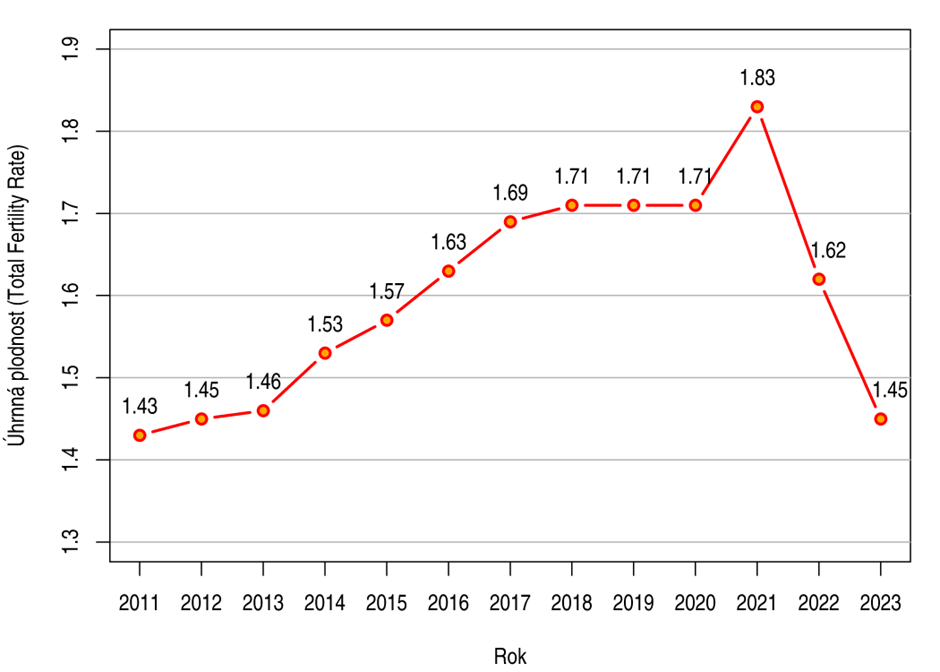Tento www používá nezbytné cookies bez nichž nefunguje. Jako provozovatel cookies nijak nezpracováváme.
Czech data show that vaccinated people give birth to significantly fewer children.

Czech data show that vaccinated people give birth to significantly fewer children. Among women aged 18-39 born in 2023, the unvaccinated had ~114 children per 1 000 unvaccinated women; the corresponding figure for vaccinated women was ~42 children per 1 000 vaccinated women.
Tomas Fürst, who teaches applied mathematics at Palacky University in the Czech Republic, made these calculations and wrote an article on the subject based on the fact that there were interpellations in the Chamber of Deputies on 31 October 2024. Vladimír Zlínský MEP had another chance to try to explain to the Prime Minister that the decline in the total fertility rate of Czech women, which occurred about a year after the start of vaccination with the experimental gene vaccine, is alarming.
The MEP also explained to the Prime Minister that the cumulative fertility rate is an indicator that is adjusted for the number of women in the population and their age structure.
The cumulative fertility rate can be interpreted as the average number of children a woman gives birth to in her lifetime.
The dramatic decline in the Czech Republic's cumulative fertility rate started in January 2022 and therefore reflects a real decline in Czech women's ability or willingness to have children. If we subtract nine months, the cause of this decline must have started to appear sometime around April 2021.
The Prime Minister showed in his response that he did not understand basic demographic indicators. At the heart of his message was the claim that "... what Mr Fürst has not taken into account is the number of people of reproductive age". However, as described above, the total fertility rate does not depend on the number of women in the population and its age structure.
In the years 2021, 2022 and 2023, around 112 000, 101 000 and 91 000 children were born in the Czech Republic. The number of births has therefore decreased by 19% over these three years. At the same time, the number of women aged 18-39 in the Czech population increased.
Fürst's calculations show that covid vaccination is related to fertility. Unvaccinated women gave birth to ~114 children per 1 000 unvaccinated women aged 18-39 in 2023. Only ~42 children per 1 000 vaccinated women aged 18-39 were born in 2023 to vaccinated women. If women of childbearing age had not been vaccinated, more children would have been born.
Fürst does not know if this hypothesis is valid, but believes it should be investigated because it is reasonable. He argues that it should be treated as hypotheses should be treated - confronted with detailed data. However, the data is carefully locked away in IHIS, and instead of discussing the data, the low birth rates are explained by the ageing of the population and the war in Ukraine, which started about a year after the cause of the fertility decline.
The future of the whole of Western civilisation - and of the professor and the prime minister - depends on the outcome of the test of this hypothesis.
The decline in fertility is not unique to the Czech Republic, by the way. For example, in 2023, Sweden had the lowest total fertility rate since measurements began in the country in 1749. And for the period January 2022 - July 2024, a total of 31 months, birth rates have been lower than expected in every single month and the decline has escalated. Overall, during the period, 11.6% fewer children per 100 000 women aged 18-45 were born than expected.












.png)







